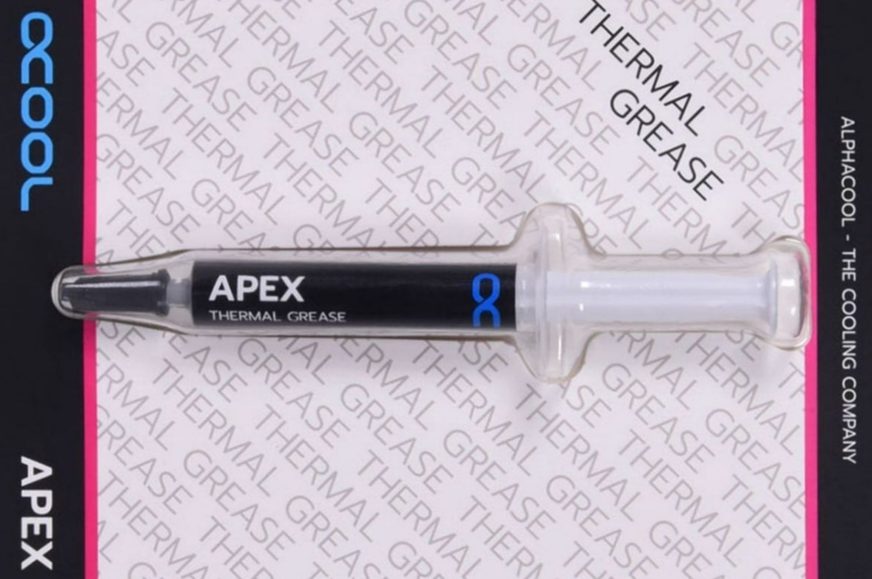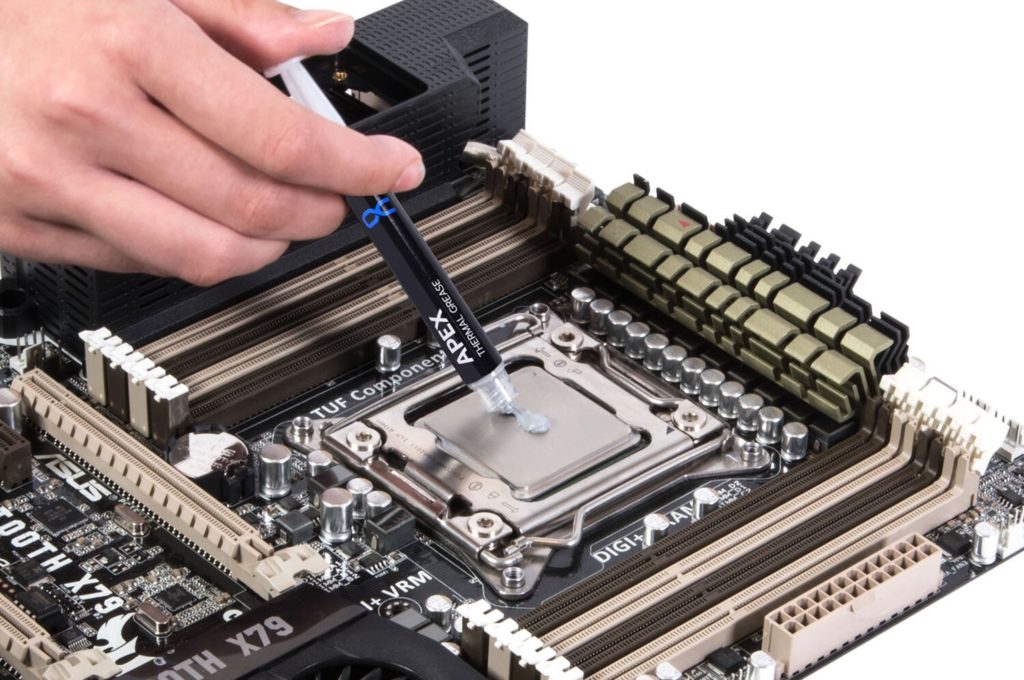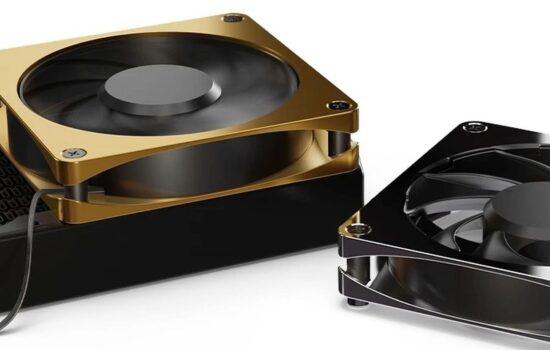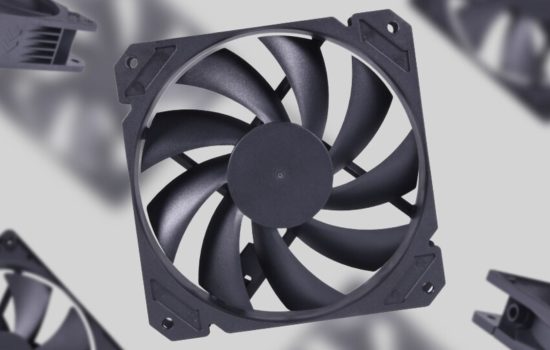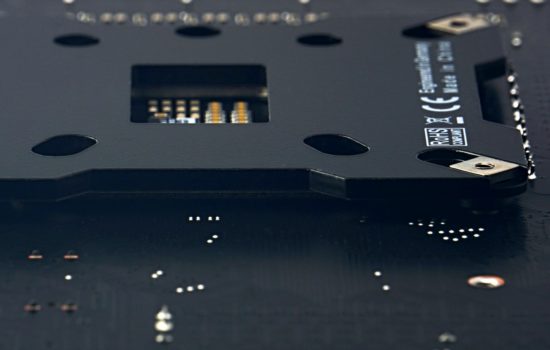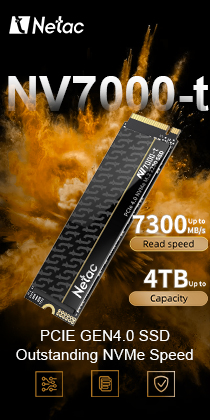Alphacool Apex thermal paste promises a thermal conductivity of 17 W/mk
Watch out, Alphacool has started aiming pretty high. In the specifications for the latest Apex thermal paste, it lists a thermal conductivity that it claims is not only above the best competing thermal pastes, but even outperforms some metals. Unless Alphacool is stretching reality, this is going to be an extremely effective formula. You won’t guess what its main ingredient is.
It’s nothing you don’t know, but still – any cooler is only as good as the thermally conductive interface on its component allows it to be. Within our topics, these are typically CPUs or VRMs. The higher the power draw, on nowadays usually very small areas, the chip has, the more important the need for more intensive (faster) heat dissipation naturally becomes.
With current CPU and GPU power draw above 300W, TIM (paste) level heat transfer also plays a role in whether or not the cooling system can handle such an onslaught. Alphacool’s new product doesn’t skimp on thermal conductivity, the specs claim up to 17 W/mK.
This sends a clear message to Alphacool’s competitor Thermal Grizzly – we have a more efficient paste than your Kryonaut Extreme (14.2 W/mK). The comparison to the thermal conductivity of stainless steel is also noteworthy – 15 W/mK. It is indeed the metal with almost the weakest thermal conductive properties, but to achieve its properties among electrically non-conductive pastes is always an excellent result.
It’s a shame that Alphacool doesn’t specify what their Apex thermal paste consists of. However, the manufacturer refers to a low viscosity of 35 Pa-s (the paste is supposed to be thin and thus better to fill even tiny joints where denser compounds cannot get in) and a kind of “nano-powder”. We do not learn more from public sources, which is quite natural. For one thing, Alphacool probably wants to protect its “know-how”, and for another, the way in which the team around Alphacool arrived at such a high thermal conductivity remains opaque.
However, Alphacool’s chief marketing officer Eddy Peters mentioned one interesting fact in a discussion on TechPowerUp! Namely, that the final W/mk values are calculated according to the substances used. So they are not based on measurements of the finished compound, which is striking to say the least.
In addition to the thermal conductivity (17 W/mK), the specifications also contain information on the density (3.5 g/cm3), operating temperature range (-40 – 120 °C), maximum load capacity (2.8 kg/cm2), to which the stated parameters apply, or thermal resistance and viscosity. These are already tested, supposedly according to ASTM standards.
At least initially, Alphacool will only sell one pack, with a volume of 4 g. It will be available from 16 June 2022 directly in the Alphacool e-shop, for an unspecified price as of yet.
English translation and edit by Jozef Dudáš





